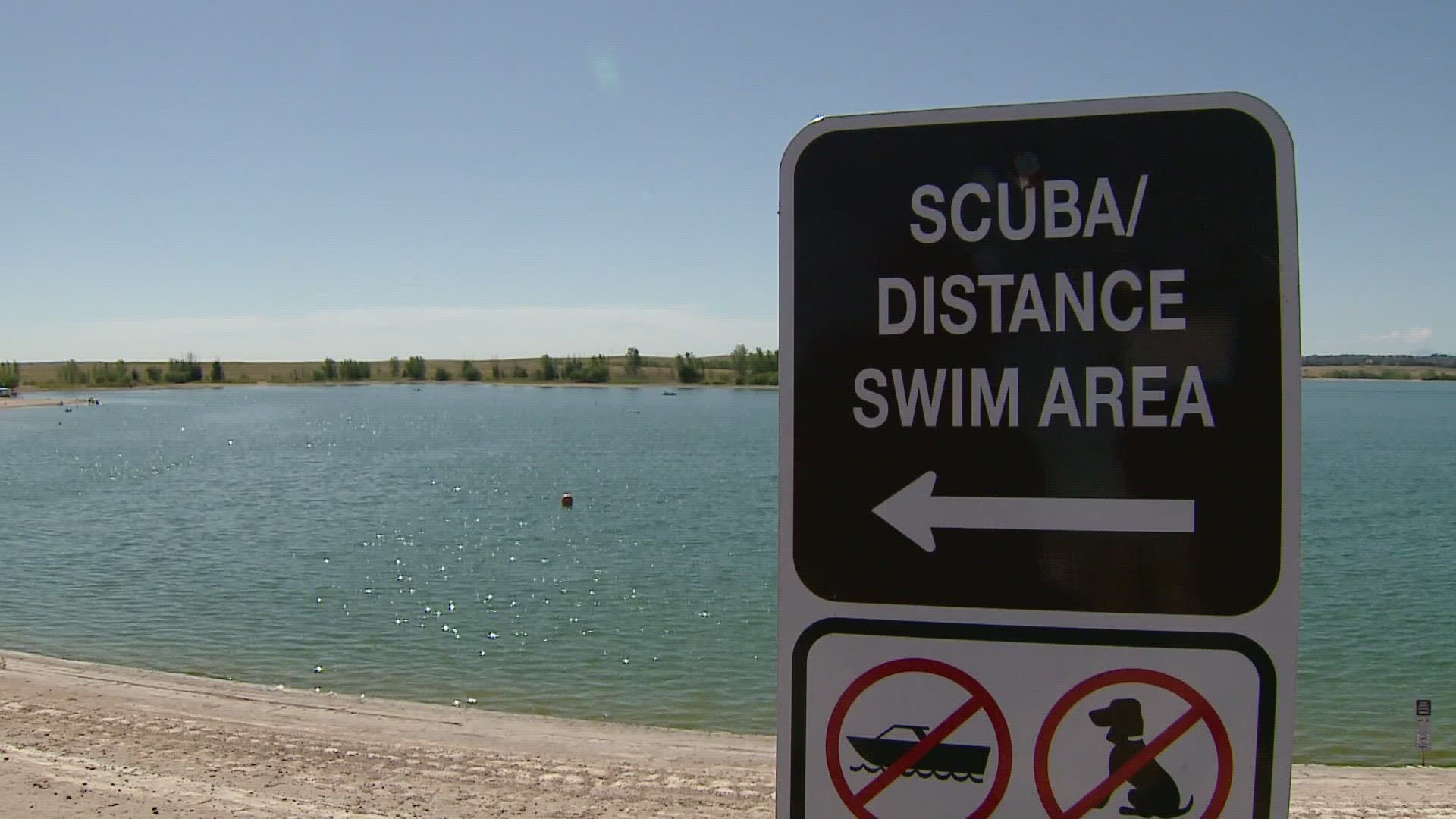COLORADO, USA — For years, more water has been taken out of the Colorado River than it can provide. It's a water system that 40 million people rely on, and the federal government has said it's on the brink of collapse.
In the face of dwindling water supplies, cities on the Front Range are trying to do their part to conserve.
"Colorado is facing a systemic water crisis," said Greg Baker, public relations manager for Aurora Water. "Municipalities need to step up to do what they can."
Seven water providers across the Front Range and in the Colorado River Basin are promising to use less water.
Las week Aurora Water, Colorado Springs Utilities, Denver Water, Pueblo Water, Metropolitan Water District of Southern California, Southeastern Colorado Water Conservancy District, and Southern Nevada Water Authority signed a memorandum of understanding that was sent to the Bureau of Reclamation. The water providers committed to cut water use by:
- Developing programs to replace non-functional grass with drought-resistant landscaping
- Increasing water re-use and recycling
- Continuing water conservation awareness through community programs
Baker said they all agreed to reduce non-functional turf by 30%. He said no timeframe was set because this work will look different for each community.
"Turf is probably the biggest point we can make right now," said Baker. "50% of our annual water use goes towards irrigation. By cutting back 30% of non-functional turf you're reducing that 50% pretty dramatically."
Baker said water conservation has been top of mind in Aurora for the last few decades.
"Aurora's in a great place right now because we put in place a couple weeks ago a new ordinance that bans non-functional turf in new development," he said. “Since 2007, we’ve had an aggressive rebate program to encourage our existing customers to replace their landscape with water-wise landscape."
Aurora also has a permanent conservation measure, which only allows residents to water their yards three days per week.
“If we don’t see a good winter this winter we’ll probably going to have to go into our next stage of drought restrictions in 2023. So we’ll be asking people to go to two day a week watering restrictions," he said. “We want to have a sustainable water system, a reliable water system for growth.”
Baker said municipalities use about 6% of all the water taken from the Colorado River. He said agriculture uses about 80%.
"Even if we save 10%, 15%, 20% you can see that’s a percentage of a percentage," he said. "“We all obviously need food and we recognize that, but there has to be a balance here. Municipalities, by saving percentages aren't going to have a significant impact on preserving the Colorado River. That lies in agriculture."
He said in order to have a resilient water system everyone -- cities, agriculture and industry -- will need to work together.
"I'm always worried about it but I'm confident that at least we're taking the right steps and we're planning for decades to come," he said. “We’re willing to step up and do more and we will do more.”
The Bureau of Reclamation has said states in the Colorado River basin need to reduce their water use by a massive amount, 2-4 million acre-feet, to avoid critically low levels at Lake Powell and Lake Mead. Basin states could not come to an agreement on how to do that.
Arizona, Nevada and Mexico will face forced mandatory water cuts from the Colorado River starting in 2023.
SUGGESTED VIDEOS: Latest from 9NEWS

